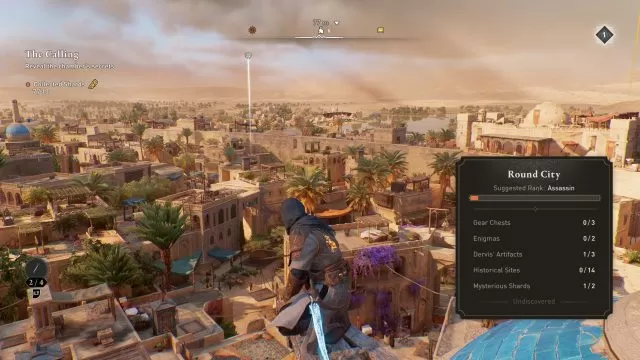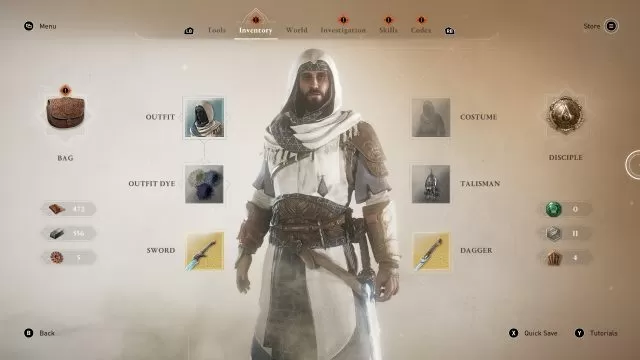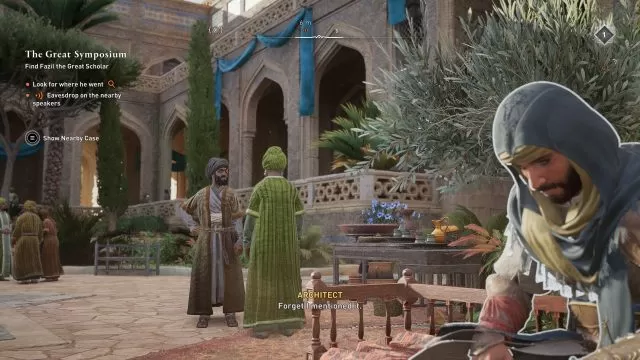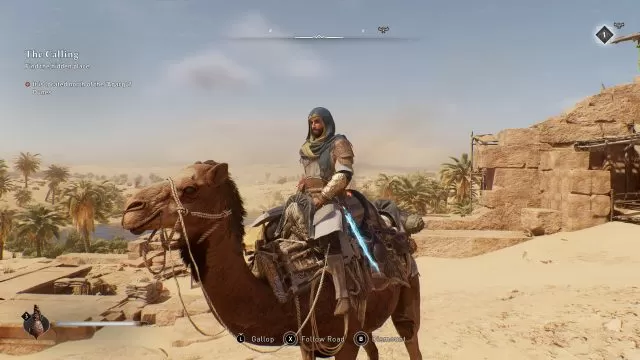Assassin’s Creed Mirage Review – Back to Basics
Without moderation, good things can be equivalently soul-crushing as bad things. Assassin’s Creed Valhalla and to a lesser extent, its predecessor, Odyssey, were too big for their own good. Expending more than two hundred hours into the super-bloated Viking saga took a lot of mental effort, even for the crazy lockdown year of 2020. I didn’t want to drop it because I was heavily invested in the overarching Assassin’s Creed mythos. Ever since the groundbreaking first game from 2007, the series has maintained a steady grip over my psyche. It was so fundamental that I even played the mobile spin-offs, fishing for the canonical drips of lore. So I persisted with Eivor and co, even if I had stopped enjoying it long before the ending credits rolled. And then, the massive DLCs cometh.
Compared to all that, Assassin’s Creed Mirage feels therapeutic. It’s a much shorter, more focused, and almost entirely traditional AC game like they used to make during the Crusades. Originally envisioned as yet another DLC for Valhalla, Mirage eventually got upgraded into the stand-alone release. The developer, Ubisoft Bordeaux, explicitly stated that they don’t have any plans for the post-launch DLCs, knowing the audiences are scared of the bloat and reluctant to commit.
Definitely a fan service

Assassin’s Creed Mirage is a tale of Basim Ibn Ishaq, the Assassin you might (or not) know from Valhalla. This time, our lad has an origin story of his own, taking place in 9th-century Baghdad. The Abbasid Caliphate is in turmoil, with the Hidden Ones and The Order of the Ancients vying for supremacy during these uncertain times. The narrative takes minimal effort to placate the people new to AC. If you aren’t familiar with the mountain of existing lore, you’ll have a hard time caring for the protagonist, his allies, and their struggle. You’re just supposed to hate the proto-Templar Order of the Ancients and its agents as if the political and societal nuances of the ninth-century caliphate can be easily framed or even understood using modern optics.
So this game is a fan service, for better or worse. More precisely, it’s made for the fans of the first couple of games, which offered tight, geographically focused experiences and linear narrative. Mirage doesn’t wander off that mission at any point. Basim’s quest to uproot and eliminate The Order leadership in Baghdad operates on a strict checklist. The only variables you are permitted are the order of completing sub-missions within every top-level assignment. Of course, this being a Ubisoft sandbox game, there are tons of optional activities, none of which are essential to progress but useful for prolonging your stay in the heart of ancient Mesopotamia.
The Thief of Baghdad

The star of the show is Baghdad, the center of commerce and learning in the ancient world. Its digital recreation is superbly detailed and it’s probably the best-looking Assassin’s Creed city to date. The game also takes place in its immediate surroundings, including the desert and several outlying settlements. Overall, the game world is tiny compared to the previous couple of games, especially Greece from the supermassive Odyssey. The much smaller size enabled the developers to focus on the details, but that effort almost exclusively covered the exterior. When you step inside the buildings, you’ll feel as if you stepped into Assassin’s Creed II. Interiors are rudimentary at best – only a couple of key locations have any details worth mentioning.
Another disappointing visual element is the facial geometry of Basim and everyone else. Judging by the polygon count alone, you could easily mistake Mirage for an early PlayStation 4 title. That said, an almost depersonalized visual trend replicates itself in characterization and script. Basim is a supremely dull protagonist, essentially as empty a vessel as Altair or Connor. During the 35-hour adventure, he never said anything substantial and worth remembering. If you think I’m being too harsh, just reinstall Assassin’s Creed II or Revelations and spend some time with Ezio Auditore da Firenze. It’s perplexing why no AC managed to replicate the charisma and wit of the most beloved Assassin of them all.
Classic AC gameplay returns

What Assassin’s Creed Mirage does well is the core AC gameplay. The game puts great emphasis on stealth, which was lacking in importance in the last few games. Basim is, first and foremost, an assassin, and he’ll be doing a lot of murdering, so the focus on subterfuge makes total sense. The devs went back in history and reintroduced the “kill box” concept, the contained environment where the major kills are taking place. Almost every mark crucial to the story needs to be smoked out and lured into the open before you can slide the hidden blade into their neck. Good reconnaissance is essential, so expect to use Eagle Vision all the time, as well as the services of Enkidu, your trusty scout eagle.
Basim’s arsenal is functional and relatively modest. Apart from the hidden blade, he carries a sword, dagger, and a short assortment of combat gadgets such as smoke bombs, throwing knives, blow darts, etc. His equipment, including gadgets, can be upgraded by investing the materials gathered from all around. Some of the best stuff, such as secret Isu weapons and robes, is already fully upgraded. When forced to fight openly, Basim can make rudimentary combat moves, but melee is not his strongest suit. Besides the fast and slow swings with the sword, he can parry and dodge, and that’s it, save for one or two optional moves purchasable within talent trees.
The nostalgia play

As I said, optional activities are plenty, but they are hardly necessary. You can engage in contracts for various factions in the city (merchants, scholars…) which reward you in specific tokens. You can use those for various bribes during the game. Lowering the merchant prices, enlisting the help of nearby mercs, or eliminating notoriety usually takes one specific token. But, since you can easily and quickly obtain those by pickpocketing bystanders, contractual work is mostly moot. I had a much better time deducing enigmas, simple but often quite challenging puzzles involving hidden goodies. A bit of clever sleuthwork never hurts.
It’s too early to tell if Assassin’s Creed Mirage will manage to put the series back on the upward trajectory. On one hand, the game is tight, focused and has that unmistakable classic feel people asked for after Valhalla. On the other, it feels derivative and stuck in the past. The nostalgia play worked this time, but for the next major release, Assassin’s Creed will need to reinvent itself (again).
Highs
- Short, focused, and mostly bloat-free.
- Superbly recreated ancient Baghdad is the star of the show.
- Greater emphasis on stealth than in any AC game from the last couple of years.
Lows
- The story won’t make much sense to players not (heavily) invested in Assassin’s Creed lore.
- Basim and his allies are supremely dull.
- Face models make the Mirage look like an early PS4 title.
- Dreaded Denuvo in the PC version.

